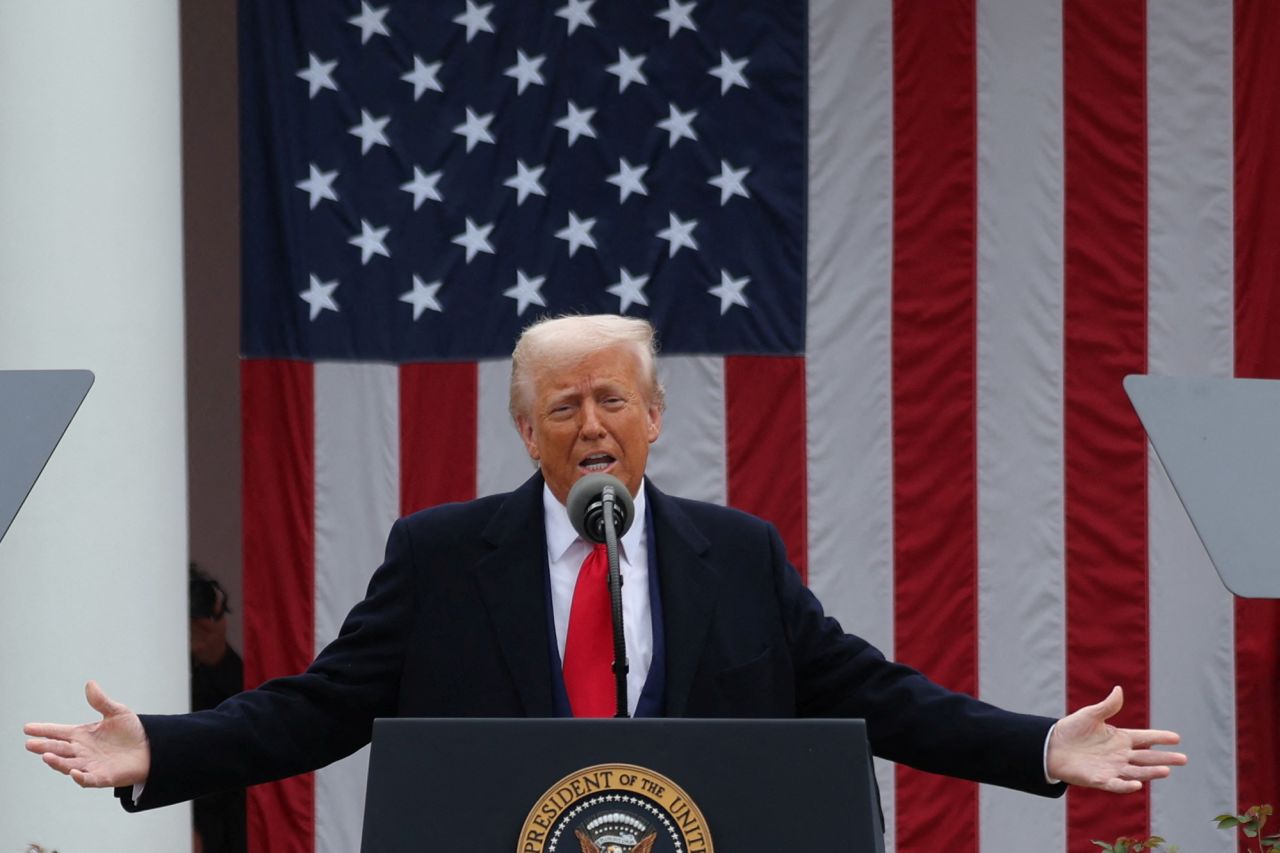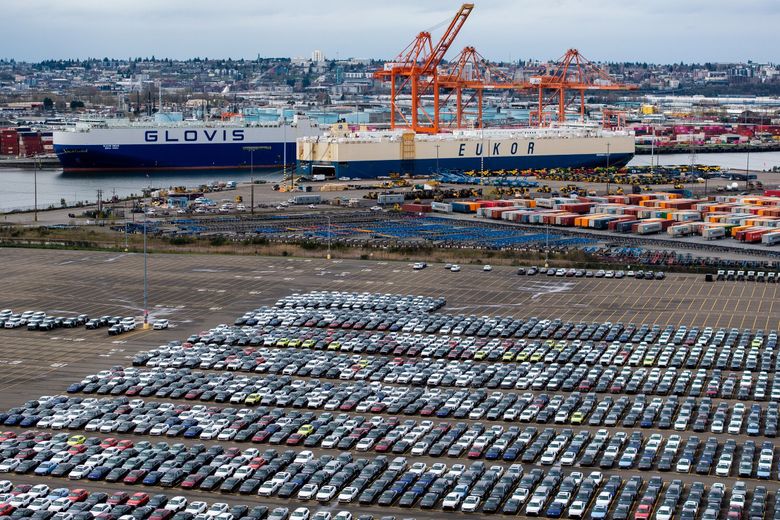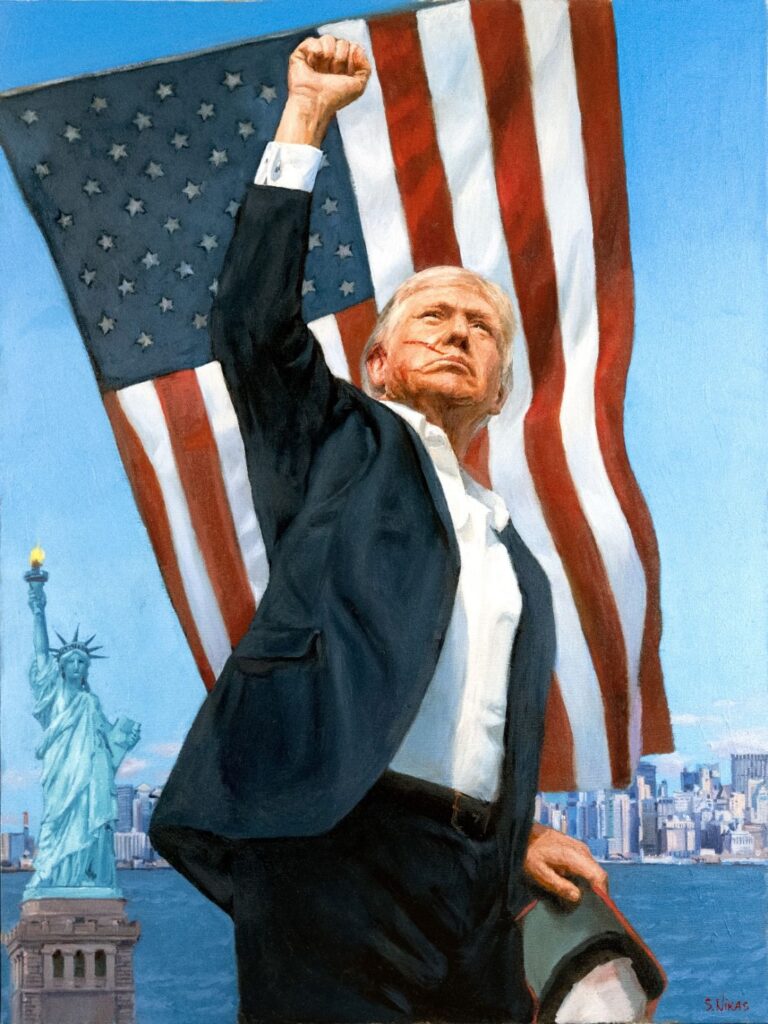Now Reading: Trump Shocks Global Markets with ‘Liberation Day’ Tariff Bombshell
-
01
Trump Shocks Global Markets with ‘Liberation Day’ Tariff Bombshell

Trump Shocks Global Markets with ‘Liberation Day’ Tariff Bombshell
In a move that has sent shockwaves through global markets, President Donald Trump has dramatically escalated his trade war policies by announcing sweeping new tariffs on goods from around the world. Standing confidently in the Rose Garden, Trump declared April 2nd as “Liberation Day” — a moment he claims will forever mark America’s economic rebirth.
The announcement comes just months into his second term, delivering on campaign promises to radically reshape America’s trade relationships. Financial analysts are already predicting major ripple effects across global supply chains and international relations.
‘Liberation Day’: Trump’s Vision for Economic Independence
“This is Liberation Day,” Trump declared with characteristic flair. “April 2, 2025, will forever be remembered as the day American industry was reborn, the day America’s destiny was reclaimed, and the day that we began to ‘Make America Wealthy Again.'”
Using provocative language that left little room for diplomatic interpretation, the President claimed that America has been “looted, pillaged, raped and plundered” by nations both friendly and hostile. This rhetoric signals a dramatic shift from traditional trade diplomacy to a more confrontational approach.
Immediate 25% Tariff on All Foreign Automobiles
The centerpiece of Trump’s announcement is a massive 25% tariff on all foreign-made automobiles, scheduled to take effect at midnight. This represents a tenfold increase from the current 2.5% tariff rate and targets major car-producing nations like Japan, Germany, and South Korea.
“When it comes to trade, the friend is worse than the foe,” Trump stated bluntly, specifically calling out the European Union and Asian nations for what he characterized as unfair automotive trade practices. This move is likely to significantly impact prices for imported vehicles across all segments of the market.

The ‘Reciprocal Tariff’ Doctrine Explained
At the heart of Trump’s new trade policy is what he calls “reciprocal tariffs,” which he explained in characteristically direct terms: “They do it to us, and we do it to them. Doesn’t get much simpler than that.”
The President highlighted significant disparities in current tariff structures, pointing out that while the US charges 2.5% on imported motorcycles, Thailand charges 60%, India 70%, and Vietnam 75%. This imbalance has long been a source of frustration for the administration and became a central campaign theme during the 2024 election.
Economic experts are divided on the potential impacts of this policy shift. Some economists warn that protectionist measures could trigger retaliatory tariffs and potentially disrupt global supply chains, while others suggest it might boost domestic manufacturing and create jobs.
Global Trading Partners in Trump’s Crosshairs
The announcement specifically targeted China, Mexico, Canada, and the European Union as the main subjects of America’s trade grievances. These trading partners have already been hit with 25% tariffs on many goods entering the US since early in Trump’s second term.
Taking aim at traditional allies, Trump criticized various trade barriers he perceives as unfair: “The EU doesn’t want American poultry. Australia won’t purchase American beef. Meanwhile, Japan, South Korea, and China don’t want us to sell our rice there.”
This confrontational approach with allies represents a significant departure from traditional American trade diplomacy and signals potential challenges for international relations in the coming months.

The DOGE Connection: Musk’s Influence on Trade Policy
The tariff announcement comes in the context of broader economic restructuring, including the creation of the Department of Government Efficiency (DOGE) led by Elon Musk, whom Trump has affectionately dubbed his “First Buddy.”
Musk’s influence on the administration’s economic policies has been evident since Trump’s inauguration in January. The DOGE initiative aims to slash federal government spending while the tariff policies seek to reshape America’s trade relationships – twin pillars of what the administration calls its economic revolution.
While Musk wasn’t present at the Rose Garden announcement, his previous statements on trade imbalances suggest alignment with the President’s aggressive stance on international commerce.
What Happens Next: Market Reactions and Potential Fallout
International reaction has been swift, with several nations already signaling potential retaliatory measures. Market analysts are predicting significant volatility in the coming days as investors digest the implications of this major policy shift.
For American consumers, the immediate impact will likely be felt in automobile showrooms, where prices for imported vehicles could rise substantially overnight. The broader implications for inflation, supply chains, and diplomatic relations remain to be seen.
As President Trump frames this momentous shift as “our declaration of economic independence,” the world watches to see whether this gambit will deliver the promised American renaissance or trigger an unprecedented global trade conflict.
With midnight approaching and the new tariff regime about to take effect, one thing is certain: April 2, 2025 – Trump’s self-declared “Liberation Day” – marks a dramatic turning point in global economic relations that will be studied for decades to come.












